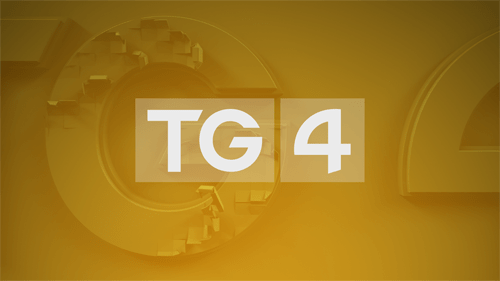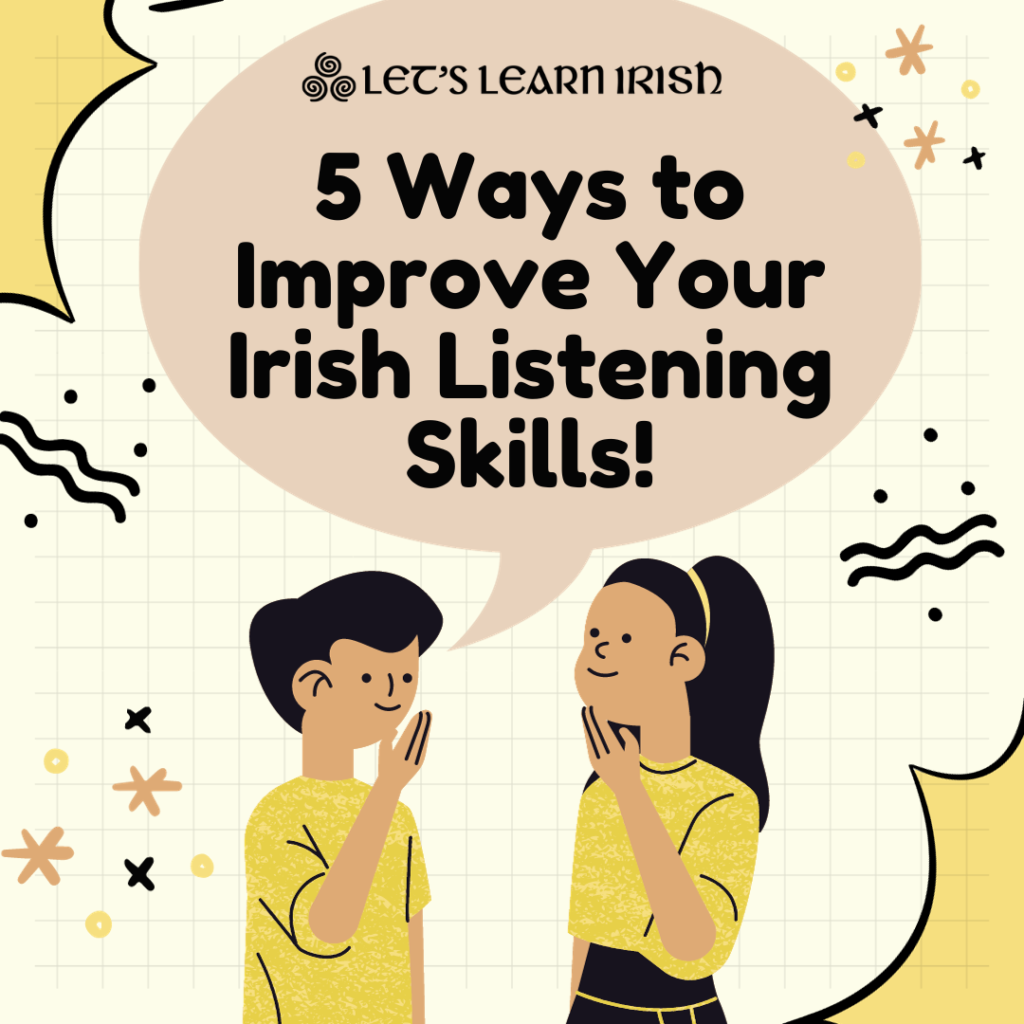5 Tips For Improving Your Irish Listening Skills
No matter how closely we listen in a conversation, it can often be difficult to pick out certain words in Irish! We’ve previously written about how you might deal with this challenge. As you continue on your language journey, keep in mind these 5 Tips For Improving Your Irish Listening Skills – we hope they will help with your ‘scileanna éisteachta’!
1. Listen Twice
 In real life, you can usually ask somebody to repeat themselves, so don’t be too strict when practicing at home. Replay sounds such as song choruses, or snippets from a video or podcast, until you can pick up on a few more words.
In real life, you can usually ask somebody to repeat themselves, so don’t be too strict when practicing at home. Replay sounds such as song choruses, or snippets from a video or podcast, until you can pick up on a few more words.
Replaying certain words or phrases may not be possible with live TV episodes, radio shows, speeches or performances, but in most other cases you are able to pause and rewind, or simply say to your speaking partner “Abair sin arís, le do thoil”.
When listening to songs, find the song lyrics beforehand (e.g. SongsinIrish.com), or for news transcripts, check out Vifax. In the case of our weekly classes, all students can play back the video recordings, or download the audio version of the class, which is incredibly helpful when going over each week’s new content.
2. No Subtitles
 One of the most successful TV shows of 2021 was Squid Game, which wouldn’t have become a worldwide phenomenon without the help of subtitles. However, even after watching all 9 episodes, did any of us learn any Korean?
One of the most successful TV shows of 2021 was Squid Game, which wouldn’t have become a worldwide phenomenon without the help of subtitles. However, even after watching all 9 episodes, did any of us learn any Korean?
When we follow subtitles, our brains get lazy, and we don’t actually listen to the language being spoken! This means that language learners should stop using English subtitles altogether. Watching Ros na Rún without English subtitles is a good place to start. There is a diverse collection of programmes available for streaming on TG4, catering for a wide range of interests. When available, opt for Irish subtitles, so your brain can start to associate sounds with words that you may already recognise written down.
3. Take Notes
 If you’re a visual learner, listening practice may be hard for you. There’s no point spending your precious time listening to Irish if you’re not going to remember any of it! That’s why it’s a good idea to take notes, and the more concise the notes are, the better. You might want to note down words you like, unfamiliar words that were repeated several times, or any other things that stand out to you.
If you’re a visual learner, listening practice may be hard for you. There’s no point spending your precious time listening to Irish if you’re not going to remember any of it! That’s why it’s a good idea to take notes, and the more concise the notes are, the better. You might want to note down words you like, unfamiliar words that were repeated several times, or any other things that stand out to you.
Take a few minutes after every listening session to read through your notes, giving you more chance to retain the vocabulary and enabling you to research and answer any questions you may have jotted down. Do this after listening to a podcast, conversation or recorded class. Many of our members like to use Anki as a learning tool – read about it here!
 You won’t be able to understand a whole language overnight, but you will gradually understand more and more if you are consistent with your listening practice.
You won’t be able to understand a whole language overnight, but you will gradually understand more and more if you are consistent with your listening practice.
Whether you choose to listen to music or podcasts or join an online comhrá session, what matters is that you do so regularly. You can even combine several learning methods for the best chance of making fast progress. See our online community for ways to engage with the language on a daily and weekly basis. Our weekly ‘Topaic na Seachtaine’ allows our members to focus on a specific topic at Comhrá sessions.
5. Focus on your Interests
There’s no point listening to a podcast about forestry if you have no interest in the environment, or listening to an audiobook about true crime if you’re a fan of romance novels!
In order for your Irish listening abilities to improve, it’s vital that you choose subjects that are of interest to you. Focus on your hobbies or passions, or things that you might find useful in your everyday life. This way, the audio material will spark an interest, and you are more likely to try to understand and to be keen to continue your efforts, rather than getting bored and giving up.
Dúshlán na Seachtaine / Challenge of the Week:
Test your skills by playing one of your favourite Irish language music songs. What can you understand?
Post a comment in Irish on our Facebook page, reply to us on Instagram or send us a Tweet!
Join the online Irish community for cúrsaí, comhrá & ceardlanna, and follow along on social media @LetsLearnIrish – beidh fáilte romhat!





